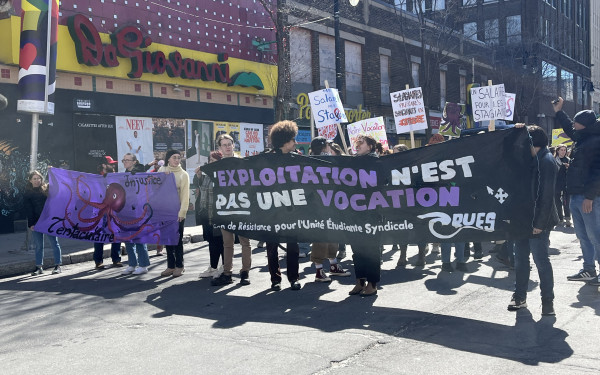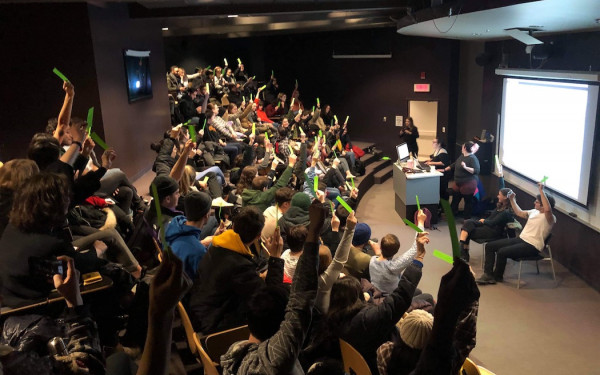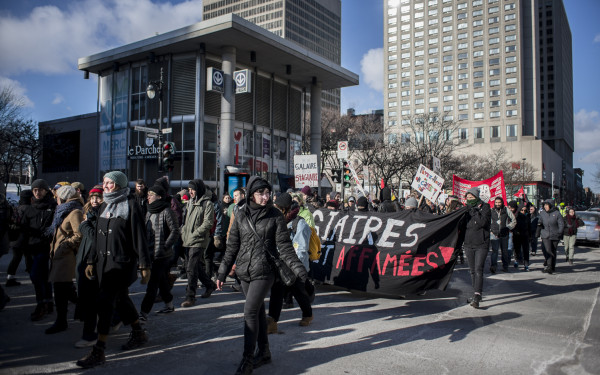Is Your Unpaid Internship Illegal?
There are a lot of things in life I’d like to experience, and working for free is not one of them.
Yet, in this depressed economy, this is often what employers are expecting. People entering the job market are increasingly expected to prove themselves by working for experience or exposure—both codewords for working without really getting paid—or for less than minimum wage. These unpaid and underpaid jobs are often packaged as “internships.”
Despite what employers may think—or want you to think—not all unpaid work can be legally called an internship. Sometimes, it is just unpaid work, and that violates the labour code.
What many people do not realize is that ‘employee’ and ‘intern’ are not just random designations bestowed by an employer as they see fit. These are legally protected categories of work and there are specific laws governing them. Under the labour code there are legal recourses for abuse in either category. A so-called intern whose position does not actually meet the legal definition of an internship may be entitled, under the labour code, to the benefits of an employee—including wages.
The legal classification of internship differs from province to province. In Quebec, the specifications for what constitutes a legal internship are clearly defined. There are three basic conditions for a work position to be an internship—and therefore legally allowed without remuneration.
An internship must meet one or more of the following criteria: work that is part of a government approved training program overseen and directed by an educational institute, work that is part of a vocational training school program, or work for non-profit organizations that is of community benefit.
Many postings for internships do not fit this legal definition, and this is becoming an increasingly high profile issue. From small companies looking for a new website, to blogs looking for free content, to large companies like Bell Canada, employers looking to reduce their overhead often—whether intentionally or inadvertently—subvert the law when it comes to unpaid work.
In our depressed job market, employers seem to think that work opportunities are a favour. Wherever they can, they are replacing entry-level positions with unpaid work. Sadly, their point of view is reinforced by comments like those of Steven Poloz, Governor of the Bank of Canada, who famously encouraged jobless youth in 2014 to “work for free” as a way to gain entry to the labour market for unemployed youth.
This is a disaster for job seekers and workers generally, and one we need to fight against. By replacing entry-level positions with unpaid internships, employers effectively exploit our labour and privilege those who can afford to work for free. To take an unpaid internship, someone has to be able to rely financially on another source such as savings or family support. For those without access to those resources working for free may not be an option.
This is a disaster for job seekers and workers generally.
When unpaid internships begin to replace entry-level positions as a source of work experience, the negative effects of inter-generational poverty or family abandonment are increased in a person’s employment prospects.
These situations are more often faced by people from marginalized communities—intergenerational poverty for example, may be exacerbated by race. LGTBQ youth are more likely to be abandoned by family—currently 20 to 40 per cent of homeless youth in Canada are LGTBQ, and while not all of these youth are necessarily abandoned, few can rely on their families for support.
Encouraging youth to work for free also obscures structural issues within the labour market. Employers are effectively externalizing the financial responsibility for training and preparing workers—once considered a cost of business. This is not the answer to the structural shifts and decline in the labour market and economy that has taken place over the past ten years. As workers we should individually and collectively resist this.
If you are currently, or have been, employed in an illegal internship you may have legal recourses. In 2014, former ‘interns’ of Bell Canada sued Bell for unpaid wages in relation to their internship program—the program was closed as a result. Other interns have successfully recovered wages in similar disputes, although the results of the Bell case are unreported. You can also inform employers, and others about the legal conditions of internships in Quebec.
You can help to assert the rights of employees by refusing to participate in unpaid labour. Don’t get me wrong; I am a firm proponent of volunteerism and community engagement. If the work you are considering fits the legal definition of an internship, or is volunteer work that benefits your community, it can also be a great way to gain work experience. Also, if it is possible within your degree, doing an internship for which you receive academic credit—in which you actually receive hands on experience and training—can be a great way to maximize the utility of your degree and learn about jobs in your field.
If the work you are being asked to do does not fit the legal definition of an internship, refuse it. No one should be working for corporations for free. The corporation is profiting from your work—there is no reason you shouldn’t be.
Jamie Robinson is an Office Assistant at the Concordia Student Union’s off-campus Housing and Job Bank (HOJO). HOJO has drafted a letter for employers offering ‘unpaid internships’ which violate the labour code. If you see an internship posted that you believe may be unfair, you can speak to HOJO about contacting the employer.
In a previous version of this article, the author was listed as Leanne Robinson, HOJO’s coordinator. In fact, the author is Jamie Robinson, Office Assistant at HOJO. The Link regrets the error.






